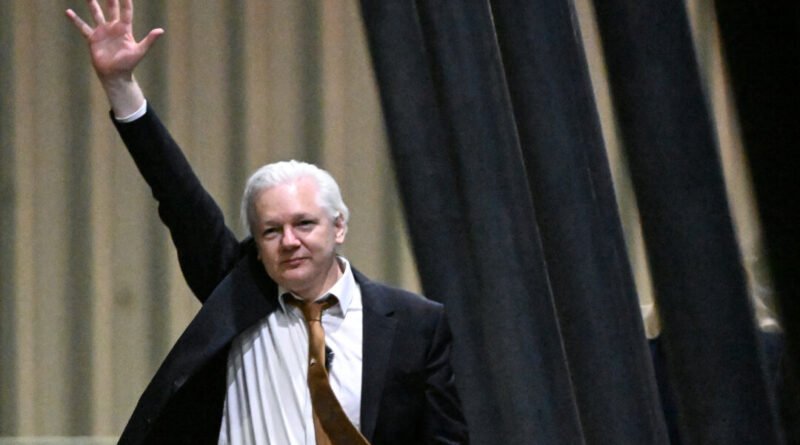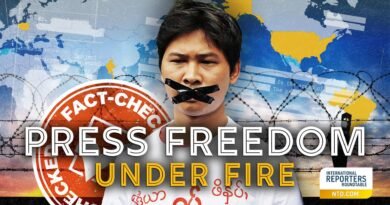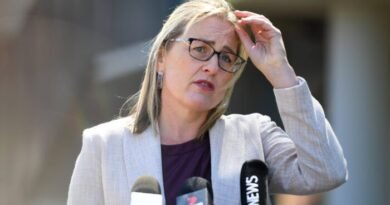Senator Believes Assange Does Not Deserve Hero’s Welcome
Simon Birmingham also said the Wikileaks release of classified information should not be considered ‘journalism.’
Shadow Foreign Minister Simon Birmingham has welcomed Julian Assange’s return home, but cautioned against treating him like a “hero.”
The Wikileaks founder set foot in Australia on June 26, the first time in over 14 years following a protracted legal and diplomatic deadlock.
Mr. Assange was accompanied by Australia’s top diplomats to the United States and the UK, and also received a phone call from Prime Minister Anthony Albanese upon his arrival.
Yet Senator Birmingham was critical of this action.
“The fact that it’s at an end is welcome. What he does not deserve is the warm embrace or homecoming welcome of Prime Minister Albanese like some type of hero,” Mr. Birmingham told ABC Radio.
“What he did yesterday … was finally plead guilty to charges under the Espionage Act in a United States court. And it shows little regard for our closest ally to be welcoming home somebody who has just pleaded guilty to such charges.”
Why US Prosecutors Were Interested in Assange
U.S. prosecutors had originally charged Mr. Assange with violating the Espionage Act over WikiLeaks’ release of hundreds of thousands of confidential U.S. military records and diplomatic cables.
Some of this material included 75,000 documents related to the War in Afghanistan, and 400,000 Iraq War reports.
In return, all other charges were dropped, Mr. Assange was banned from entering the United States, no further extradition attempts would be made, and authorities would take into account the five years Mr. Assange already spent in Belmarsh prison in the UK with no further prison time to be added.
One of the defences Mr. Assange’s lawyers had originally put forward was that it was in the public interest for him, as a journalist, to release the material online. The deeper legal issue was whether freedom of expression was exempt from offences under the Espionage Act.
In one of the first press conferences since Mr. Assange’s return, his wife, Stella told media that the Wikileaks founder had pleaded “guilty to committing journalism.”
“This case criminalises journalism, journalistic activity, standard journalist activity of news gathering, and publishing. This is the reality of this prosecution,” she said on June 27.
“The case should never have been brought but the important thing is that Julian is free and that he is no longer in Belmarsh prison and that the case is over.”
Assange’s Actions Not Journalism: Senator
Senator Birmingham said what Mr. Assange did with the release of the Wikileaks information was not “careful journalism” or anything a “responsible media outlet would do.”
“Instead, he simply published around half a million documents and without having read them, curated them, checked to see if there was anything that could be damaging or risking the lives of others in there,” the senator said.
“He simply dumped them on the internet. That is not journalism and shouldn’t be feted as such.”
Mr. Birmingham also said the prime minister’s actions sent the “wrong signals” to Australia’s allies.
“There will be many Americans who think that it’s inappropriate for the Australian prime minister to provide that type of homecoming welcome to Julian Assange. Having just pleaded guilty to U.S. charges,” he said.
Labor’s Finance Minister Katy Gallagher said there were different views about Mr. Assange.
“I don’t know whether that is particularly useful today. I mean, people have different views about what he did,” she told ABC Radio National.
What Other Critics Are Saying
Mr. Assange’s release has also been met with criticism worldwide.
Andrei Sannikov, from Index on Censorship, said Wikileaks Russian representative Israel Shamir had “informed on the Belarus opposition,” which resulted in the jailing of individuals.
The U.S. State Department had made efforts to “warn hundreds of human rights activists and foreign government officials regarding the threat posed by the disclosure of their identities.”




